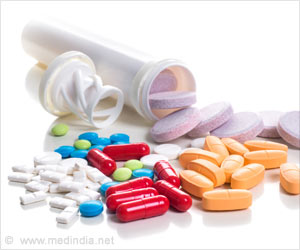Novel plant-based treatment made of powdered dried-leaf Artemisia (DLA) found to be effective against patients dying from drug-resistant malaria in Africa.
- Malaria is a common mosquito-borne infection and the World Health Organization (WHO) estimates that approximately 212 million persons contracted malaria in 2015 alone.
- Drug resistance in treating malaria is a major public health concern and can cause even death.
- New plant-based therapy made from dried-leaf Artemisia (DLA) shown to have cured 18 critically ill and almost dying patients suffering from drug-resistant malaria in Africa.
- The report is based on the entire treatment history of 18 patients in the African Congo Republic, who were diagnosed with malaria.
- They were initially given the standard recommended artemisinin-based combination therapy (ACT), which consists of artemisinin, a chemical extract from Artemisia annua, and a combination of one or more drugs known to attack the malarial parasite in various ways.
- None of the patients ranging in age between 14 months to 60 years responded to the standard ACT treatment, and lapsed into severe malaria characterized by neurological symptoms, respiratory distress, pulmonary edema and coma in a 5-year-old child.
- All were then treated with intravenous artesunate, the frontline drug for severe malaria, but again there was no response to this either.
- Finally, with no other option doctors turned to dried-leaf Artemisia (DLA) tablets (as yet unapproved), under the ‘compassionate use’ doctrine. This therapy has been developed and extensively studied by Weathers and her team at WPI and made available in the poorest regions of Africa.
- Following five days of treatment with tablets made from only the dried and powdered leaves of Artemisia, all 18 patients recovered completely.
- Laboratory testing revealed they had no parasites remaining in their blood. (Weathers adds that more than 100 other drug-resistant patients have also been treated with DLA based therapy earlier.)
Malaria is a febrile parasitic illness (Plasmodium spp) transmitted by mosquito bite. According to WHO estimates more than 212 million contracted malaria in 2015 and nearly half a million persons died.
At present nearly 100 countries in the world have malarial transmission with about half the world’s population under threat. Young children and pregnant are particularly vulnerable. Most deaths are due to Plasmodium falciparum and are reported from Africa.
The recommended treatment currently is Artemisinin-based combination therapy (ACT) following resistance of traditional anti-malarial treatment. However, it is expensive to produce and emerging cases of resistance to ACT are also being reported especially from Southeast Asia.
Advantages of DLA Based Therapy – Based On Earlier Research By Dr Weathers
- DLA based therapy delivers 40 times more artemisinin to the blood than the drug made from the chemical extract of the plant
- It eliminates infection more effectively than current drugs and has been shown to cure rodents that were resistant to artemisinin.
- Low cost of production and ease of manufacturing with minimal training. In fact Dr.Weathers has spearheaded establishment of units that manufacture, supply and do quality testing of DLA based tablets in East Africa. This was the source of treatment for the 18 critically ill patients.
- DLA based therapy has been found to be effective against other diseases as well including cancers and other tropical illnesses.
"We have done a lot of work to understand the biochemistry of these compounds, which include a number of flavonoids and terpenes, so we can better understand the role they play in the pharmacological activity of the dried leaves," Weathers said. "The more we learn, the more excited we become about the potential for DLA to be the medication of choice for combatting malaria worldwide.
The fantastic results of the trial suggest that DLA based therapy should be part of the treatment regimen for malaria, especially in areas where drug resistance is a problem. More research and trials in human patients with resistant malaria may be necessary before the therapy is approved. However, it is indeed a godsend to the developing countries where malaria is not only rampant, but a major killer disease, the problem compounded by resistance to currently approved therapies.
Reference:
- Nsengiyumva Bati Daddy, Luc Malemo Kalisya, Pascal Gisenya Bagire, Robert L. Watt, Melissa J. Towler, Pamela J. Weathers. Artemisia annua dried leaf tablets treated malaria resistant to ACT and i.v. artesunate: case reports. Phytomedicine, 2017; DOI: 10.1016/j.phymed.2017.04.006













